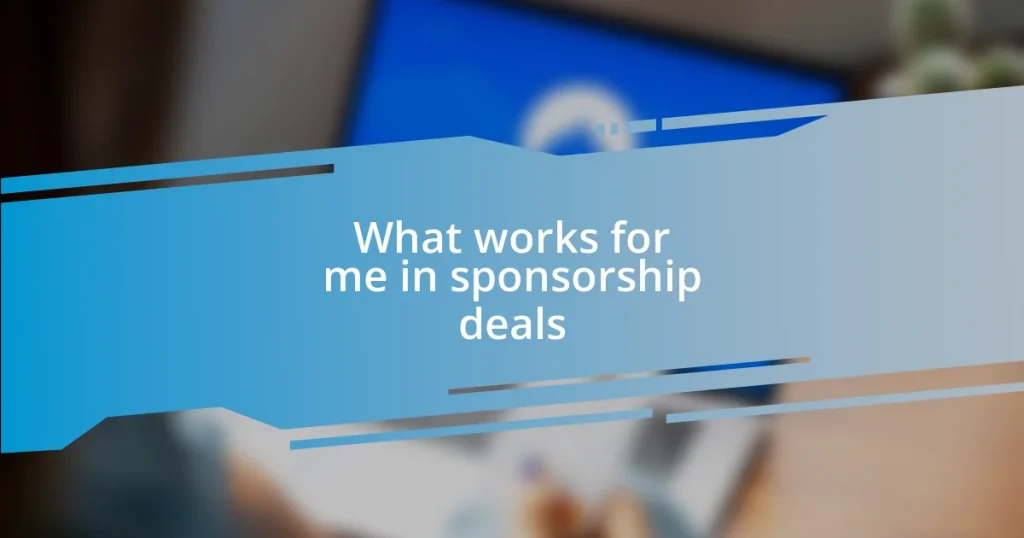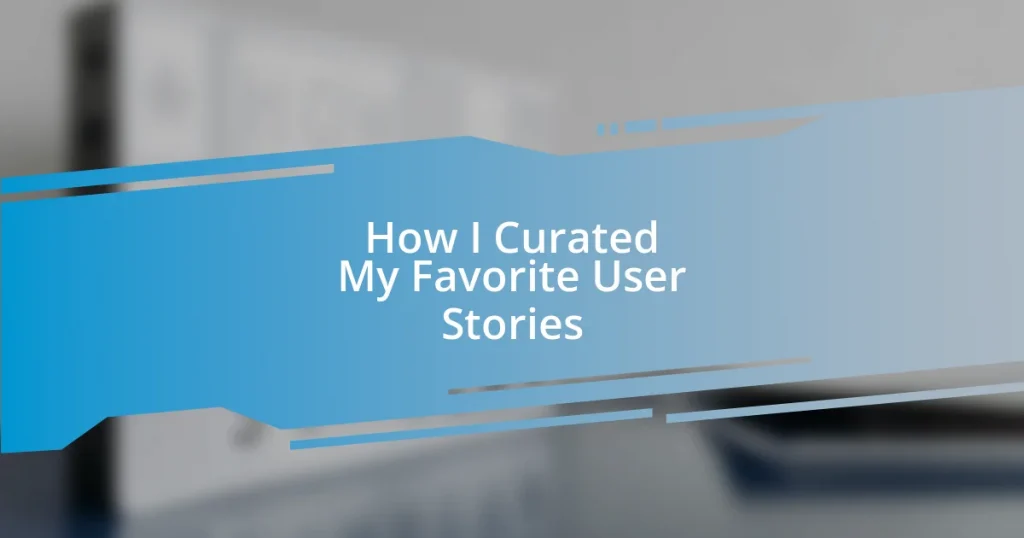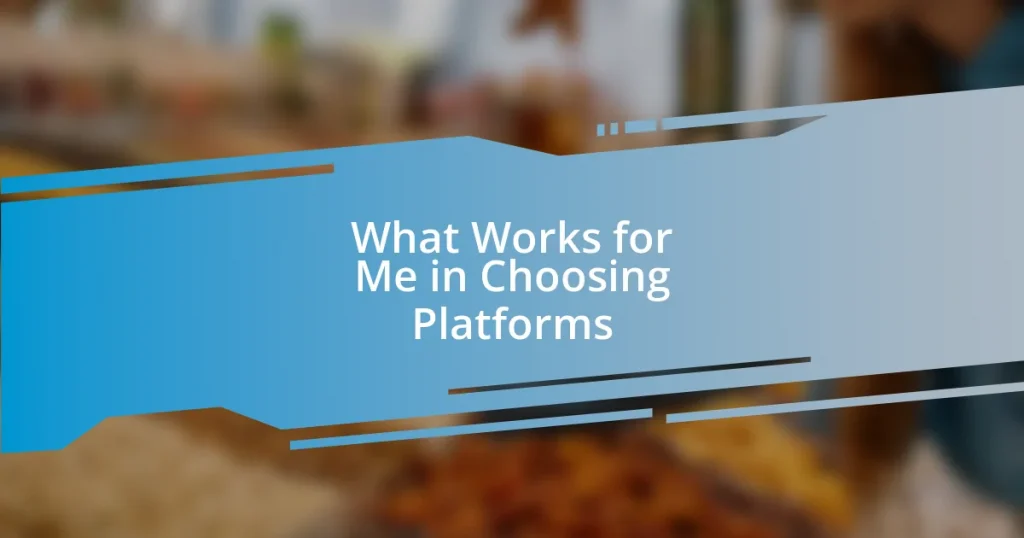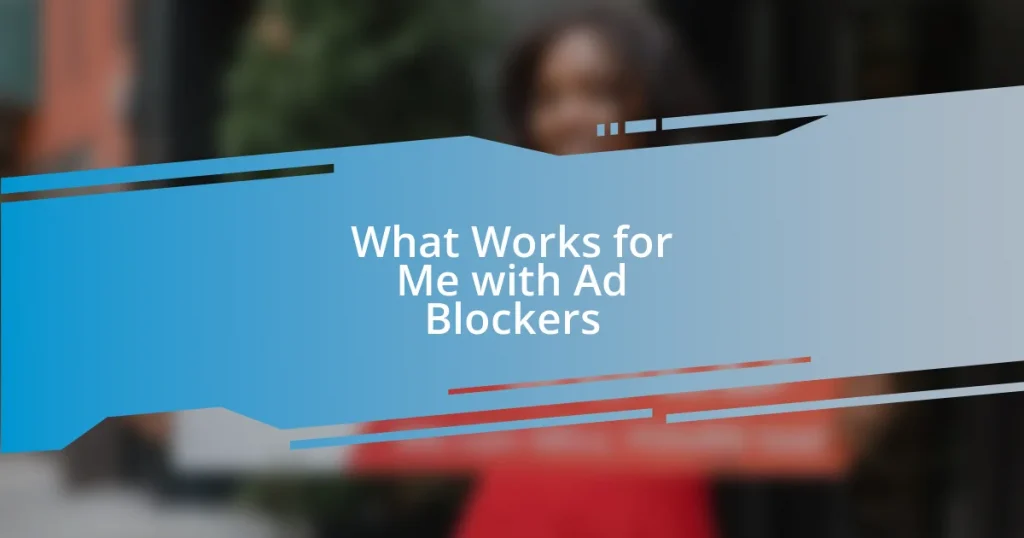Key takeaways:
- Successful sponsorship deals depend on clear communication of goals, values alignment, and understanding target audiences.
- Building authentic relationships with sponsors through personal engagement and regular check-ins enhances collaboration and trust.
- Measuring success should focus on audience engagement and feedback, ensuring that both partners align on goals from the beginning.
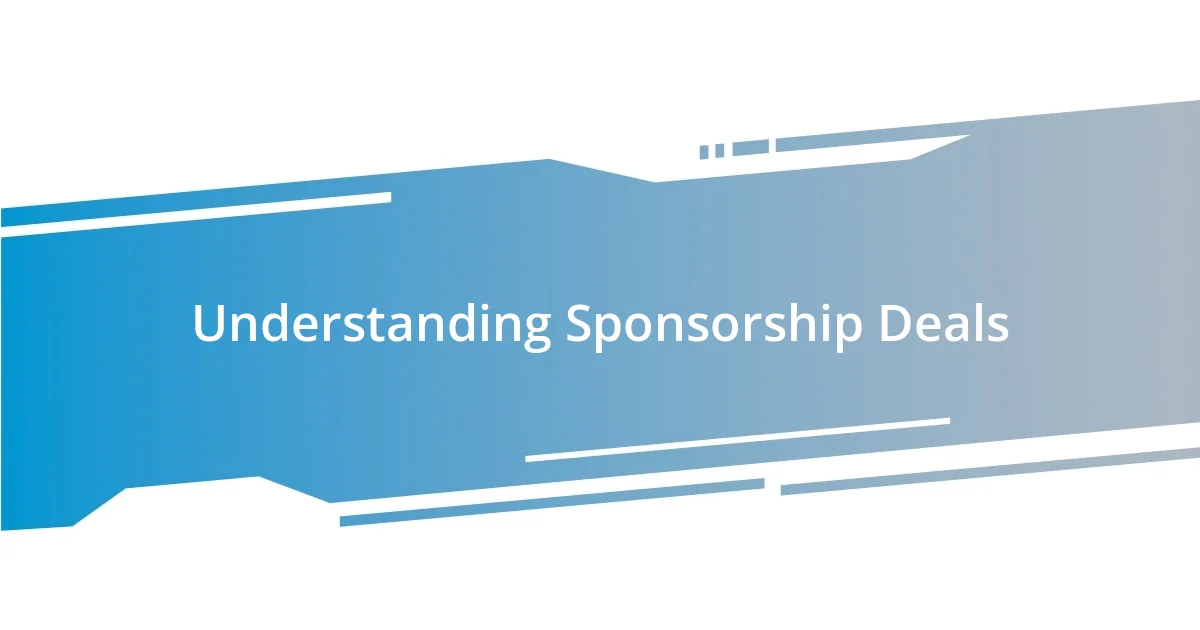
Understanding Sponsorship Deals
Sponsorship deals are essentially partnerships where one entity provides support—financial or otherwise—to another in exchange for brand visibility. In my experience, these arrangements often hinge on mutual benefit, so it’s crucial to understand what both parties hope to gain. Have you ever thought about how carefully aligned values can strengthen a partnership?
When I first navigated the world of sponsorship, I quickly learned that clarity is key. A well-defined agreement outlines expectations and deliverables, which helps avoid misunderstandings down the line. I remember sitting in a meeting, feeling the tension because we hadn’t clearly articulated our goals. That experience taught me the importance of having open dialogues from the get-go.
It’s also vital to consider the target audience; knowing who you’re trying to reach can significantly impact the success of your sponsorship deals. For example, I once collaborated with a brand that was passionate about sustainability, and aligning that with my audience’s interests not only made the partnership authentic but also resonated deeply. Isn’t it fascinating how the right combination can create something truly impactful?
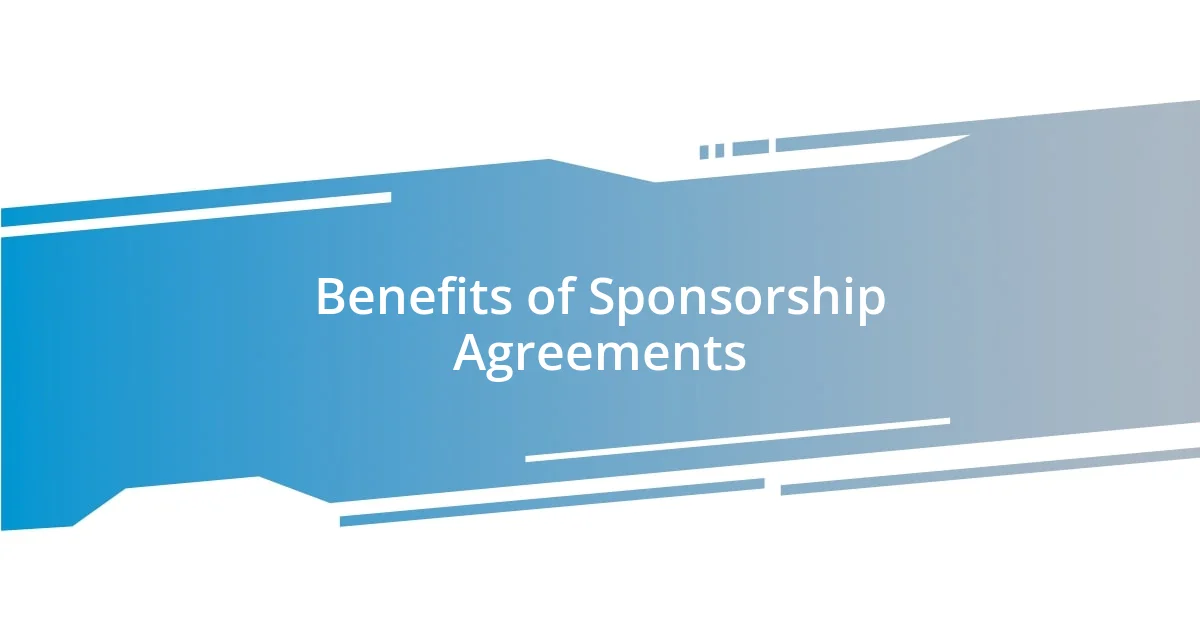
Benefits of Sponsorship Agreements
Sponsorship agreements can deliver significant benefits that extend beyond financial support. From my perspective, one of the most rewarding aspects is the opportunity for greater visibility. For instance, during a recent event, I partnered with a local wellness brand, and their backing not only amplified my reach but also introduced me to a whole new audience passionate about health and fitness. It’s invigorating to witness how the right sponsorship can create authentic connections between brands and communities.
Here are some key benefits of sponsorship agreements:
- Enhanced brand visibility and recognition
- Access to new and diverse audiences
- Mutual promotion through shared marketing efforts
- Strengthened credibility and reputation through association
- Financial backing for projects or events, helping them reach their full potential
Each of these elements plays a crucial role in building a successful partnership, creating a true win-win scenario for both parties involved.
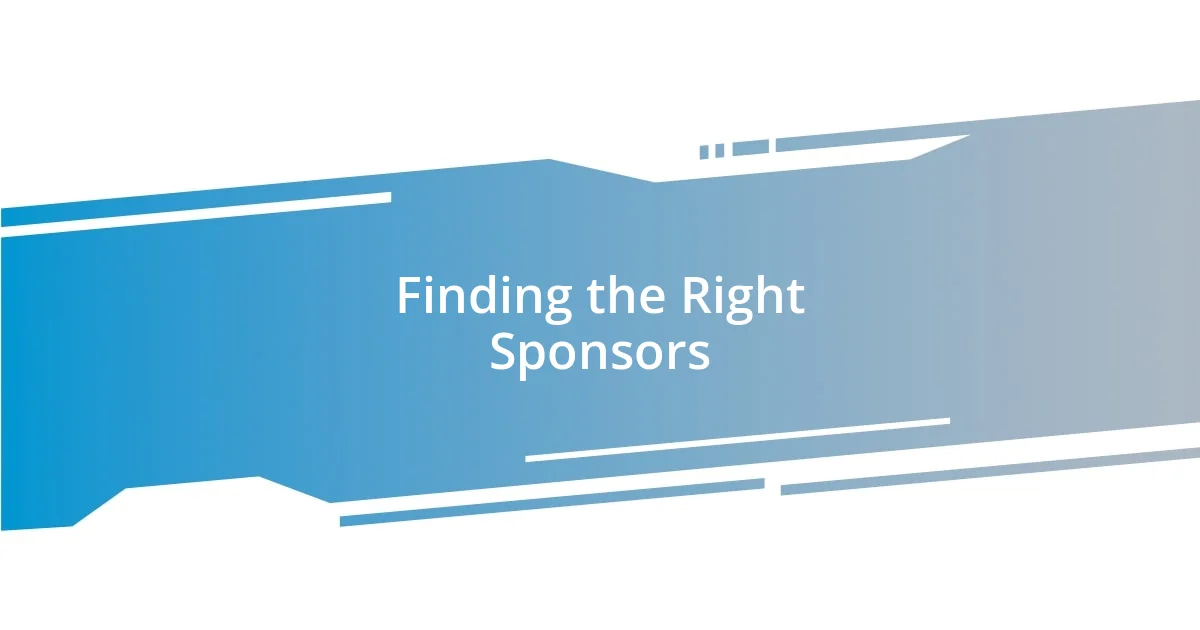
Finding the Right Sponsors
Finding the right sponsors can feel like a puzzle at times, especially when you want to ensure a solid alignment of values. I’ve found that diving deep into a potential sponsor’s mission and goals is essential. Once, I overlooked this aspect and partnered with a brand that seemed like a good fit on paper. However, as we worked together, it became clear that our values didn’t mesh well, ultimately leading to a partnership that felt forced. It’s moments like these that have taught me the importance of genuine compatibility.
As I continue to explore sponsorship opportunities, I always consider how a sponsor’s audience matches my own. I vividly recall a time when I approached a tech company known for innovation, only to realize their demographic skewed much younger than mine. The excitement I felt initially quickly faded when I understood we weren’t speaking to the same crowd. It’s a crucial insight; harmonizing the target audiences can significantly boost both parties’ effectiveness in engaging followers.
When you’re on the hunt for the right sponsors, relationships and personal connections often play a pivotal role. In one instance, I reached out to a sponsor during a networking event where we shared a mutual contact. That conversation ended up leading to a fruitful partnership because we were able to share insights and connect authentically. Genuine interactions can not only open doors but also foster long-lasting collaborations—something that always excites me in this space.
| Criteria | Considerations |
|---|---|
| Values Alignment | Evaluate the mission and vision of potential sponsors. Do they resonate with your own values? |
| Target Audience Match | Analyze if the sponsor’s audience aligns with yours. Will both parties benefit from the partnership? |
| Relationship Building | Focus on establishing strong connections. How can mutual contacts facilitate a positive partnership? |
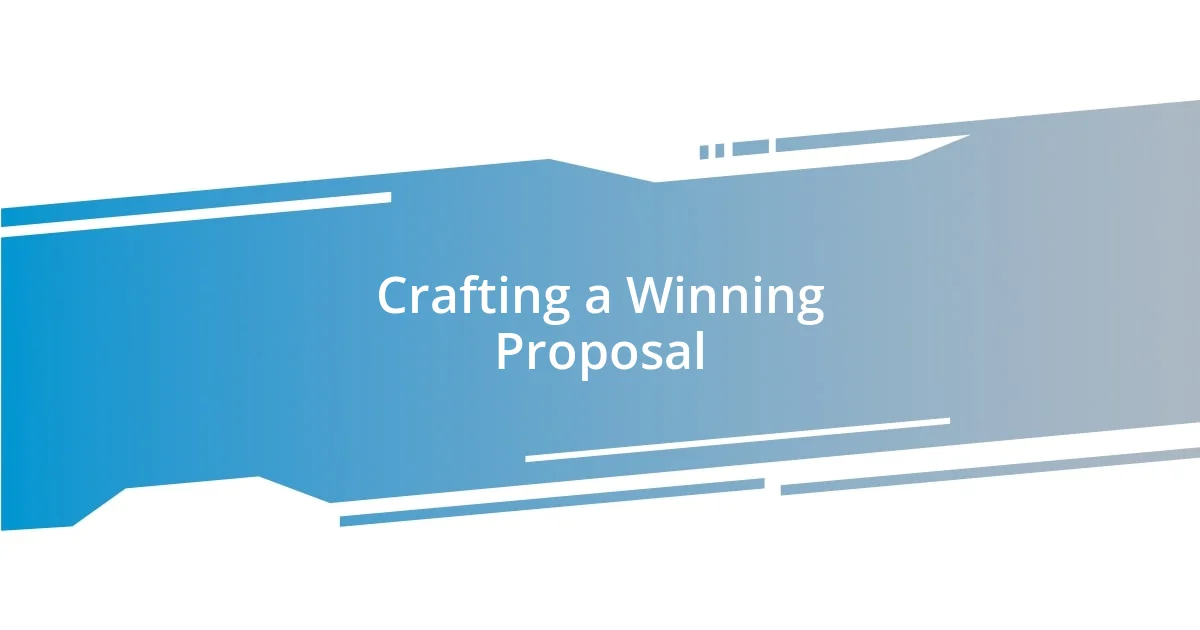
Crafting a Winning Proposal
Crafting a winning proposal is all about telling a compelling story. When I prepared a recent proposal for a sponsorship with a popular outdoor brand, I included not just the numbers but also a narrative that showcased my past successes and the community impact of my events. It was important to convey my passion and the potential for synergy, allowing the brand to visualize how our partnership could truly thrive.
I think one of the biggest mistakes I see others make is overlooking the importance of personalization. In my experience, showcasing genuine enthusiasm can make a world of difference. For example, when I included personalized touches that referenced the brand’s recent campaigns in my proposal, it sparked their interest and made the pitch feel less like a transaction and more like a mutual opportunity to collaborate. Have you ever thought about how a heartfelt approach could turn a cold outreach into a warm invitation?
Finally, clarity is key; it’s vital to outline specific benefits for the sponsor in measurable terms. During that outdoor brand proposal, I highlighted how their logo would be displayed across various platforms, reaching thousands of engaged participants. This not only made my value proposition clear, but it also painted a vivid picture of the potential return on their investment. I always remind myself, and anyone I share this process with, that clarity can bridge gaps and eliminate hesitation.
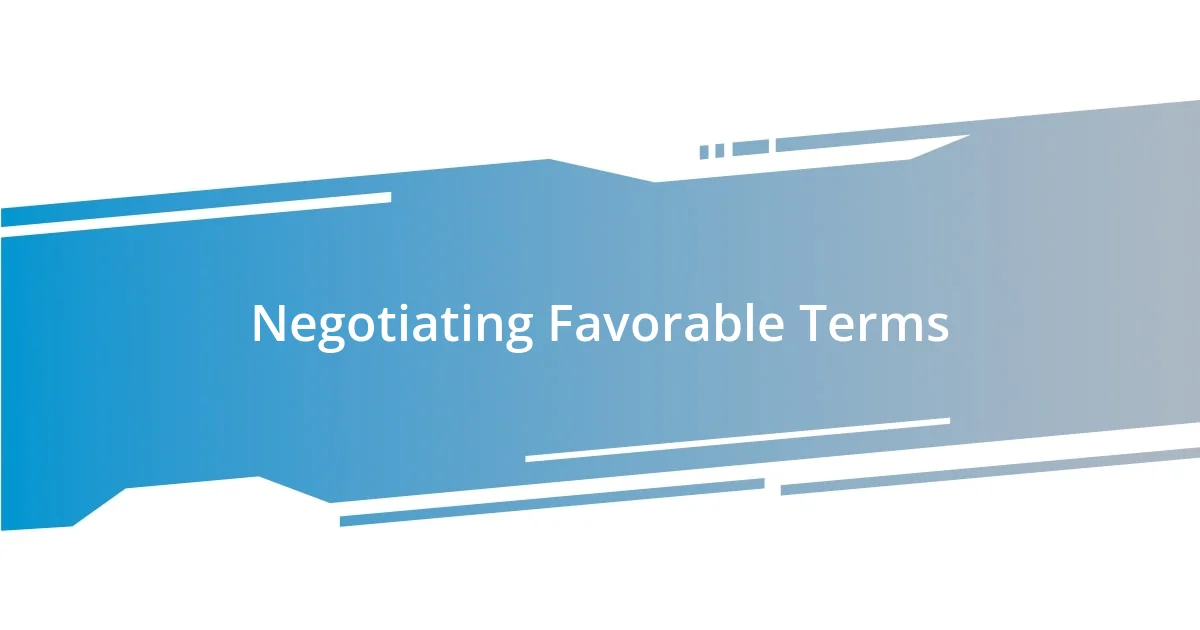
Negotiating Favorable Terms
Negotiating favorable terms requires a blend of confidence and insight. I vividly recall a negotiation where I was determined not to accept the first offer presented. By doing my research and understanding the true value I could bring to the partnership, I found the right moment to advocate for better compensation. It’s empowering to know your worth and not shy away from having those important conversations.
One strategy I’ve embraced is to approach negotiations as a collaborative effort rather than a battle. During a recent deal, I focused on highlighting the mutual benefits while emphasizing what I’d bring to the table. This approach not only fostered goodwill but also paved the way for terms that truly reflected my contributions. Isn’t it fascinating how shifting the perspective can transform a tense negotiation into a productive dialogue?
Additionally, remaining flexible during negotiations is crucial. I experienced this firsthand when a sponsor proposed a different type of deliverable than I had envisioned. Instead of rejecting it outright, I took a moment to explore how this new direction could actually enhance my reach. By being adaptable, I was able to align the sponsor’s needs with my goals, resulting in a deal that exceeded both our expectations. Wouldn’t it be wonderful if more negotiations unfolded in such a seamless manner?
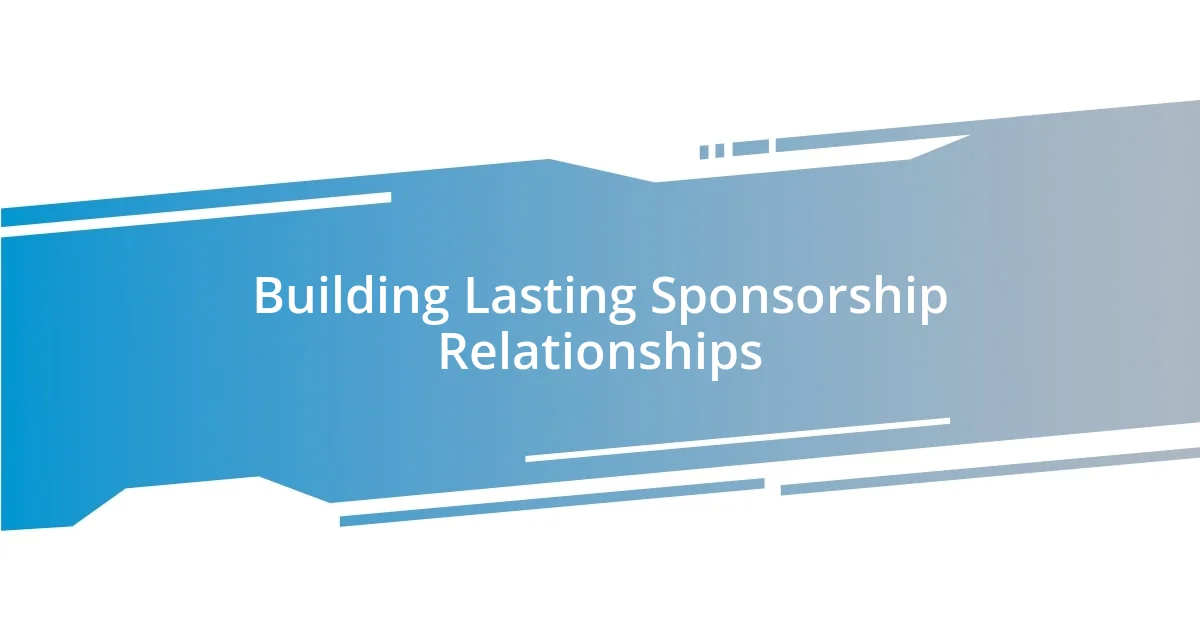
Building Lasting Sponsorship Relationships
Building lasting relationships in sponsorship is something I truly value. I remember a time when I was working closely with a local health food brand. At first, it felt transactional; however, once I took the time to engage with their team personally—sharing insights about their brand and giving feedback on their products—everything changed. It became less about the contractual obligations and more about a shared vision, which ultimately deepened our partnership.
Trust is another essential element that I’ve found brings tremendous value to sponsorship relationships. There was a period when I faced some challenges with a sponsor regarding deliverables. Rather than letting concerns fester, I chose to have an open conversation. This vulnerability not only resolved the issue but also fostered a stronger bond. Have you experienced how honesty can create a safe space for partnership growth?
Regular check-ins can make a world of difference in maintaining these connections. Once a quarter, I schedule informal catch-ups with my sponsors, where we reflect on progress, brainstorm ideas, and share our goals. These sessions often lead to new projects and ideas, reinforcing that sponsorship is a partnership built on collaboration, not just contracts. Isn’t it amazing how a little time spent nurturing these relationships can yield such rich rewards?
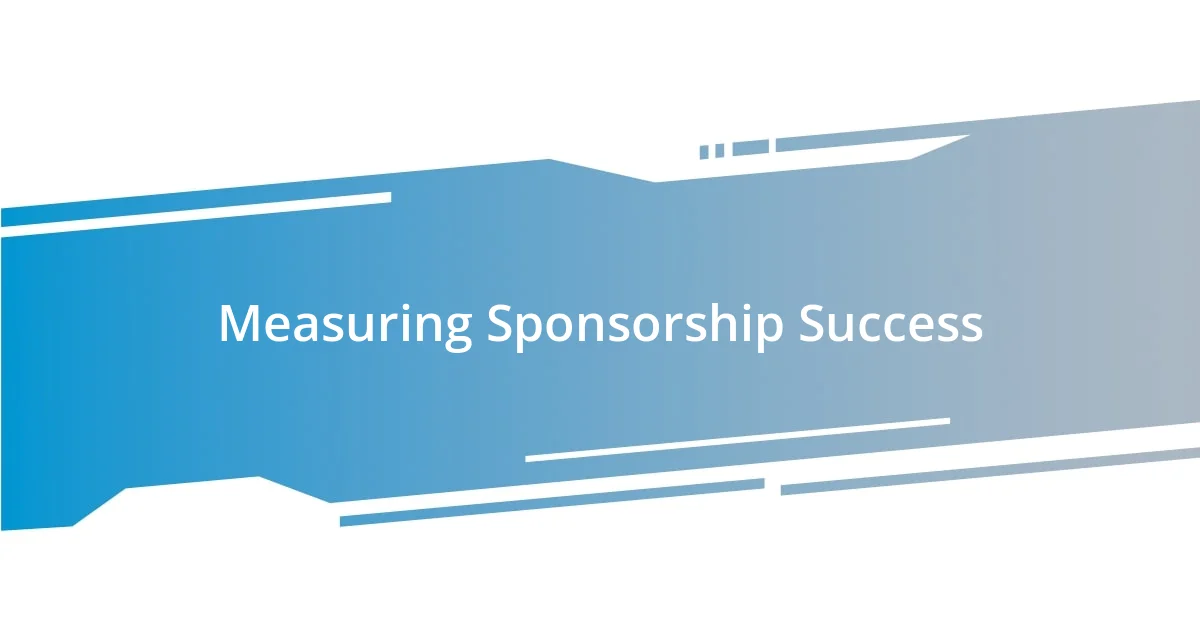
Measuring Sponsorship Success
Measuring sponsorship success is a multifaceted process that often goes beyond simple metrics. I recall a campaign where we measured success not just by reach, but by audience engagement. Watching our metrics spike as viewers interacted with our content felt gratifying and highlighted the power of genuine connection.
Another effective way I evaluate success is through feedback sessions with sponsors. In one instance, after a campaign launch, we gathered insights from both our audience and the sponsor’s team. The revelations were eye-opening. Seeing how our efforts resonated with the audience made it clear that storytelling was a crucial element in our partnership’s impact. Have you ever noticed how feedback can turn mere numbers into meaningful narratives?
Lastly, I find it essential to set clear goals from the outset. A pivotal moment in one of my sponsorship deals involved goal alignment—what the sponsor hoped to achieve versus my vision for the project. By establishing these expectations early on, we could effectively measure our progress together. Isn’t it powerful when both parties can celebrate a shared journey toward success?











